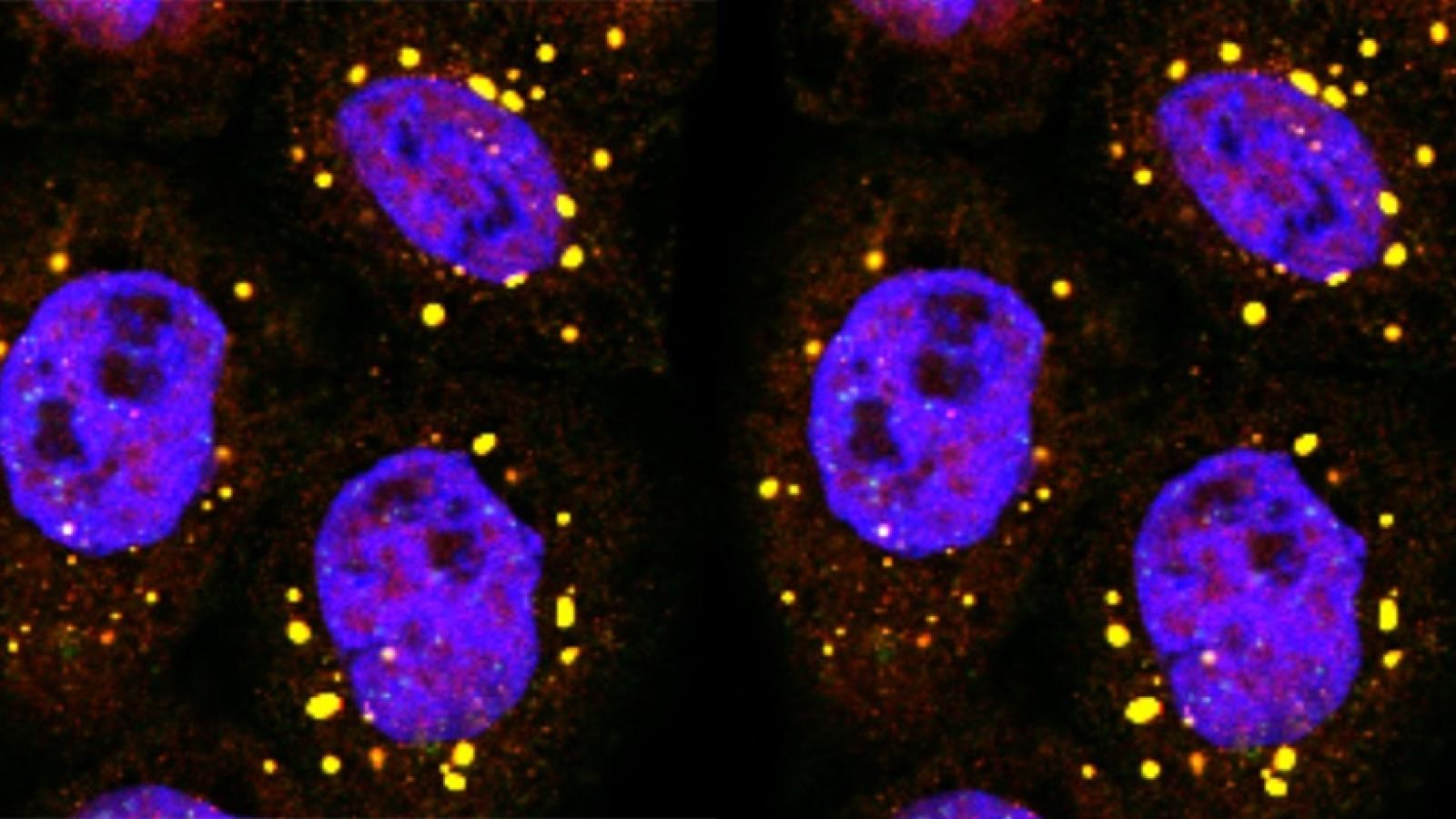A new study led by Prof David Rubinsztein (UK DRI at Cambridge) has identified a way to enhance the cell’s ability to clear away misfolded proteins, such as those implicated in neurodegenerative diseases like Alzheimer’s. The study is published in Nature Communications.
Protein folding is a critical process in the body’s cells, and to ensure this is carried out correctly, a form of quality control takes place to destroy proteins that are misfolded. In neurodegenerative diseases, this system becomes impaired, causing a build-up of misfolded proteins that form clumps or ‘aggregates’, leading to irreversible damage to cells in the brain. Understanding the pathways that are involved in the clearance of misfolded proteins may open up opportunities for new treatments targeting these pathways.
In this study, the researchers found that activating a molecule known as VCP (valosin-containing protein) increased the breakdown of misfolded and abnormal proteins within cells. The study was carried out in collaboration with Astra Zeneca and Swiss biotech company Biognosys.
main pathways that cells use to clear away waste products
We found that activating VCP improved the breakdown and clearance of misfolded proteins. These findings represent an exciting new avenue for treatments targeting VCP, in order to enhance the removal of the misfolded proteins that accumulate in the brains of people affected by diseases like Alzheimer’s and Huntington’s.Prof David RubinszteinGroup Leader & Interim Centre Director at the UK DRI at Cambridge
Previous research in this area has focused on two main pathways that cells in the brain use to clear away waste products. Known as the ubiquitin-proteasome-system (UPS) and autophagy, the two systems work together to ensure faulty and unwanted proteins are broken down and eliminated.
The researchers aimed to investigate whether they could enhance both pathways using a single molecule to maximise the efficiency. Prof Rubinsztein’s lab had previously identified that the small molecule SMER28 can stimulate the breakdown of abnormal proteins via the autophagy pathway, though the mechanism through which this occurs is not yet known.
Here, they showed that SMER28 binds to VCP and stimulates autophagy, as well as increasing the breakdown of proteins via the UPS pathway.
Dr Lidia Wrobel, co-first author and a postdoctoral researcher at the UK DRI at Cambridge, said:
“Importantly, we were able to show that SMER28 binding to VCP increased the breakdown of misfolded proteins, but did not appear to reduce the levels of healthy proteins within the cells – a key factor as the healthy versions of proteins such as Huntingtin (implicated in Huntington’s disease) have important functions in normal physiological conditions.”
The team hope this study will open up opportunities for further research into the therapeutic potential of SMER28, or the development of other molecules that could be used to activate VCP and therefore improve the breakdown of misfolded proteins within the brain.
To find out more about Prof David Rubinsztein's research, visit his UK DRI profile. To stay up to date on the latest research news and Institute updates, sign up to receive our monthly newsletter, ‘Inside Eye on UK DRI'.
Reference: Wrobel, L., Hill, S.M., Djajadikerta, A. et al. Compounds activating VCP D1 ATPase enhance both autophagic and proteasomal neurotoxic protein clearance. Nat Commun 13, 4146 (2022). https://doi.org/10.1038/s41467...
Article published: 1 August 2022
Banner image credit: Prof David Rubinsztein
